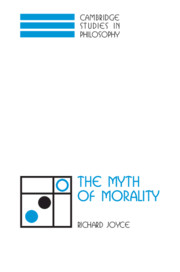2 - Error theory and reasons
Published online by Cambridge University Press: 22 September 2009
Summary
MORAL INESCAPABILITY
Despite Mackie's references to motivation, it is doubtful that the argument of the previous chapter lies at the heart of his “objective prescriptivity.” His complaint about objective prescriptivity is that it would be a “queer” property: one that finds no place in our considered world view – “value-entities or value-features of a quite different order from anything else with which we are acquainted” (Ethics, p. 40). Suppose that the queerness of morality were to reside in its “intrinsically motivating” qualities. Clearly, the mere fact that something is obligatory does not mean that people are automatically motivated to pursue it – we are all familiar with people not being motivated to pursue the good, if only because they are ignorant of what is good. What seems troubling is not somebody's being unmotivated to pursue what is good, but being unmotivated to pursue what she judges to be good. So if MI were the mistake that moral discourse makes, then it would be more natural to describe it as a mistake about what moral agents are like, not what moral properties are like. This being the case, if Mackie thought that MI were the culprit, it would be odd for him to expend time arguing about our attributing to the world queer properties (wondering how we would recognize the presence of such properties, etc.).
Information
- Type
- Chapter
- Information
- The Myth of Morality , pp. 30 - 52Publisher: Cambridge University PressPrint publication year: 2001
